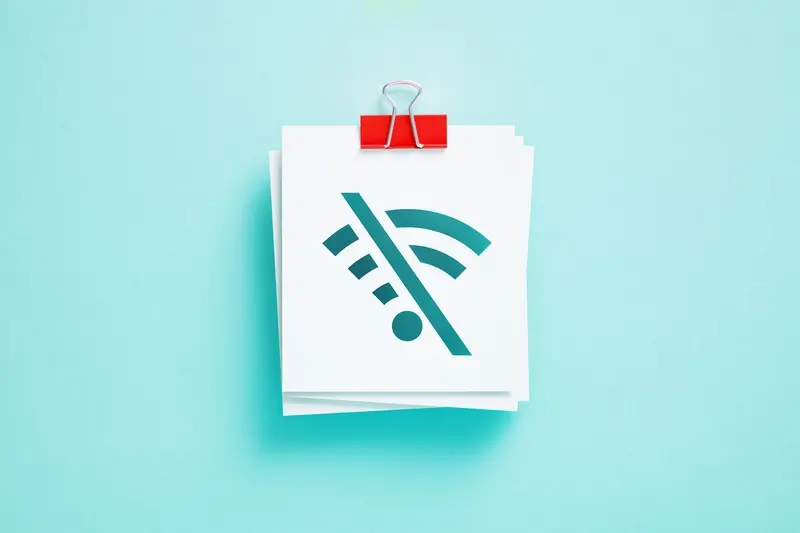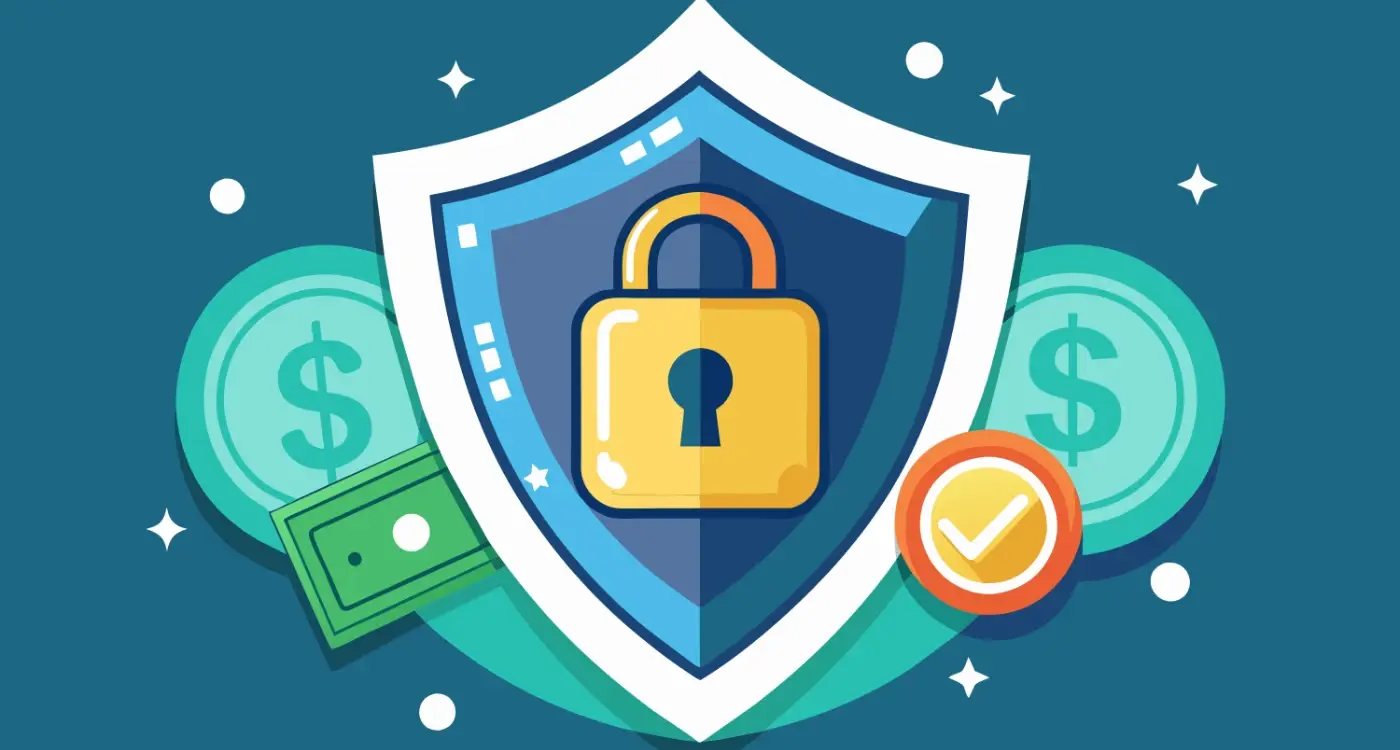What's The Difference Between Blockchain And Cryptocurrency Apps?
Have you ever wondered why some apps let you buy Bitcoin whilst others claim to use blockchain technology for completely different purposes? I get asked this question all the time by clients who are genuinely confused about the difference between blockchain and cryptocurrency apps. And honestly, I don't blame them—the terms get thrown around so much that they've become almost interchangeable in people's minds.
The mobile app development world has been buzzing with both blockchain and cryptocurrency projects for years now. Some apps focus purely on trading digital coins, others use blockchain technology to solve problems that have nothing to do with money. But here's the thing: understanding the difference between these two types of apps is absolutely critical if you're thinking about building one.
The biggest mistake I see entrepreneurs make is assuming that blockchain automatically means cryptocurrency—it doesn't.
This technology comparison might seem technical at first, but it's actually quite straightforward once you break it down. Throughout this guide, we'll explore what makes each type of app unique, how they function differently, and most importantly, which one might be right for your business idea. Trust me, getting this right from the start will save you months of development time and potentially thousands of pounds.
What Are Blockchain Apps
I've worked with quite a few blockchain projects over the years, and I still get asked this question almost daily. Blockchain apps are mobile applications that use blockchain technology to store and manage data. Think of blockchain as a special type of database that's shared across many computers at once—no single person or company controls it.
What makes these apps different from regular apps is how they handle information. Instead of storing your data on one company's servers, blockchain apps spread that information across a network of computers. This means no one can easily change or delete your data without everyone else knowing about it.
Common Types of Blockchain Apps
You'll find blockchain apps being used for all sorts of things these days. Supply chain tracking apps help you see where your food comes from; voting apps make elections more transparent; and identity verification apps give you better control over your personal information.
- Supply chain tracking applications
- Digital identity verification tools
- Voting and governance platforms
- Document storage and verification systems
- Healthcare record management
The key thing to remember is that blockchain apps don't always involve money or payments—that's where cryptocurrency comes in, which we'll cover in the next chapter. Many blockchain apps are simply about creating trust and transparency in areas where that's been difficult before.
What Are Cryptocurrency Apps
Cryptocurrency apps are mobile applications that help you buy, sell, store, and manage digital currencies like Bitcoin, Ethereum, and thousands of others. Think of them as digital wallets that live on your phone—but they're much more powerful than that.
I've built quite a few cryptocurrency apps over the years, and what strikes me most is how they've evolved from simple trading platforms into comprehensive financial tools. These apps don't just let you check prices; they're becoming proper alternatives to traditional banking services.
Types of Cryptocurrency Apps
- Exchange apps for buying and selling cryptocurrencies
- Wallet apps for storing your digital coins securely
- Trading apps with advanced charts and analysis tools
- DeFi apps for lending, borrowing, and earning interest
- Portfolio tracking apps to monitor your investments
- Payment apps for spending crypto in real-world situations
What makes these apps particularly interesting from a development perspective is how they handle security. Unlike regular apps, cryptocurrency apps need military-grade encryption because they're dealing with real money that can't be recovered if something goes wrong.
Most cryptocurrency apps work by connecting to external blockchain networks rather than storing everything locally on your device—this keeps your coins safe even if your phone breaks.
The user experience in crypto apps has improved dramatically too. What used to require technical knowledge now happens with a few taps, making cryptocurrency accessible to everyone.
How Blockchain Apps Actually Work
Right, let's get into the mechanics of how blockchain apps actually function—and I promise it's not as complicated as people make it out to be. At its core, a blockchain app connects to a network of computers (called nodes) that all keep identical copies of the same digital ledger. When someone wants to make a change or add new information, the app sends this request to the network.
The clever bit happens next. Instead of one central authority deciding whether to approve the change, multiple computers in the network have to agree it's valid. They do this by running the same rules (called consensus mechanisms) and checking the request against their copy of the ledger. If enough computers agree, the change gets bundled into a new "block" and added to the chain.
The Technical Process
Here's what happens behind the scenes when you use a blockchain app:
- Your action gets converted into a digital transaction
- The transaction is broadcast to the network of computers
- Network nodes validate the transaction using predetermined rules
- Valid transactions get grouped together into a new block
- The new block is added to everyone's copy of the blockchain
- Your app receives confirmation that the action was completed
What makes this powerful is that once something is recorded, it becomes incredibly difficult to change or delete—that's where the security and trust come from.
How Cryptocurrency Apps Function
Right, let's talk about how cryptocurrency apps actually work—and trust me, it's not as complicated as some people make it sound. These mobile apps are basically digital wallets that let you store, send, and receive cryptocurrencies like Bitcoin or Ethereum. Think of them as your personal banking app, but for digital money instead of pounds or dollars.
The app connects to the cryptocurrency network through something called APIs (Application Programming Interfaces). When you want to send Bitcoin to your mate, the app creates a transaction request, signs it with your private key, and broadcasts it to the network. The network then validates the transaction and records it on the blockchain—but the app handles all this technical stuff behind the scenes.
Security and Storage
Most cryptocurrency apps use what's called "hot storage" for small amounts and "cold storage" for larger sums. Hot storage means your digital coins are connected to the internet for quick access, whilst cold storage keeps them offline for better security. The app manages your private keys (the secret codes that prove you own your cryptocurrency) and encrypts them on your device.
The beauty of cryptocurrency apps is that they make complex blockchain technology accessible to everyday users without requiring technical knowledge
What makes these apps special is their ability to show real-time prices, transaction history, and market data by connecting to various cryptocurrency exchanges and data providers. Some apps even let you buy and sell cryptocurrencies directly, acting as a bridge between traditional banking and the digital currency world.
Key Differences Between The Two
After years of building both types of apps, I can tell you the differences are more significant than most people realise. The biggest distinction is scope—blockchain apps can do almost anything whilst cryptocurrency apps have one main job: handling digital money.
Think of it this way: cryptocurrency apps are like digital wallets that let you send, receive, and store digital coins. They're focused on financial transactions and trading. Blockchain apps, on the other hand, can track supply chains, verify identities, store medical records, or even manage voting systems. The possibilities are much broader.
Technical Complexity
From a development perspective, cryptocurrency apps need robust security for financial transactions—we're talking about people's money here! They require integration with trading platforms, real-time price feeds, and secure wallet functionality. Blockchain apps might need these features too, but they could equally focus on data verification, smart contracts, or decentralised storage instead.
User Expectations
Users approach these apps differently as well. When someone downloads a cryptocurrency app, they expect to see their balance, make transactions, and track market prices. Blockchain app users might want to verify product authenticity, access tamper-proof records, or participate in decentralised governance. The user journey is completely different.
- Cryptocurrency apps focus on financial transactions and trading
- Blockchain apps can serve multiple industries and use cases
- Security requirements differ based on the app's purpose
- User interfaces need to match different expectations
Which Type Should You Build
Right, so you've made it this far and you're probably wondering which direction to go in. Should you build a blockchain app or a cryptocurrency app? Well, the answer depends on what problem you're trying to solve and who you're solving it for.
If you want to create a digital wallet, trading platform, or portfolio tracker, then you're looking at building a cryptocurrency app. These apps are all about helping people buy, sell, store, and manage their digital coins. They're consumer-facing and need to be super user-friendly because most people still find crypto quite confusing.
On the other hand, if you're thinking about supply chain tracking, secure document storage, or creating transparent voting systems, then a blockchain app is your best bet. These apps use the blockchain technology itself to solve trust and transparency problems.
Start with your user's problem, not the technology. Ask yourself: does my app need the transparency and security of blockchain, or does it need to handle cryptocurrency transactions?
Making the Right Choice
Here's what you need to consider when making your decision:
- Budget—blockchain apps are typically more expensive to develop
- User experience—crypto apps need simpler interfaces
- Regulatory requirements—both have different compliance needs
- Target audience—are they tech-savvy or mainstream users?
- Revenue model—how will your app actually make money?
Don't just jump on the blockchain bandwagon because it sounds exciting. Build what your users actually need.
Conclusion
After years of building mobile apps—and trust me, I've seen my fair share of blockchain and cryptocurrency projects—I can tell you that understanding the difference between these two app types is absolutely critical for your success. Getting this wrong at the planning stage will cost you time, money, and probably a few sleepless nights!
Blockchain apps are the broader category; they use blockchain technology to solve problems like supply chain tracking, digital identity verification, or secure document storage. Cryptocurrency apps are more focused—they're all about digital money, whether that's trading Bitcoin, managing a digital wallet, or sending payments. Think of it this way: all cryptocurrency apps use blockchain technology, but not all blockchain apps deal with cryptocurrency.
The choice between building one or the other really comes down to your specific problem. Are you trying to create transparency in a process? Build a blockchain app. Want to help people manage their digital coins? Go with a cryptocurrency app. Both have their challenges—regulatory compliance, security concerns, and user education are just the start—but they also offer incredible opportunities for innovation.
Whatever you choose, make sure you understand your users' needs first. That's where real success begins.
Share this
Subscribe To Our Learning Centre
You May Also Like
These Related Guides

Do Blockchain Apps Work Without Internet Connection?

What Makes Banking Apps Feel Safe and Easy to Use?



